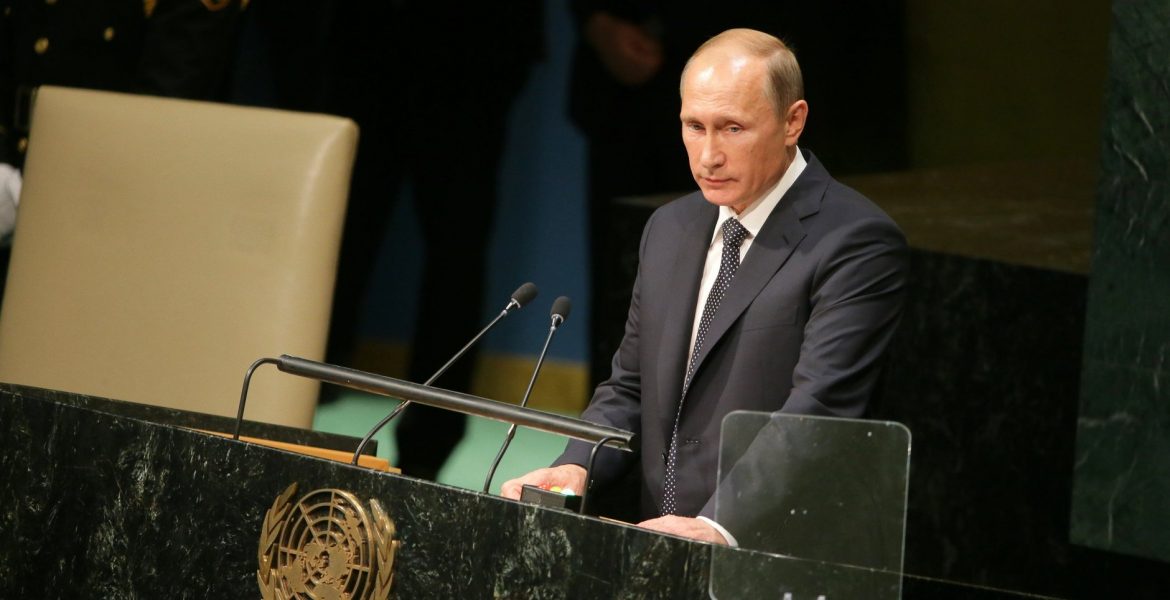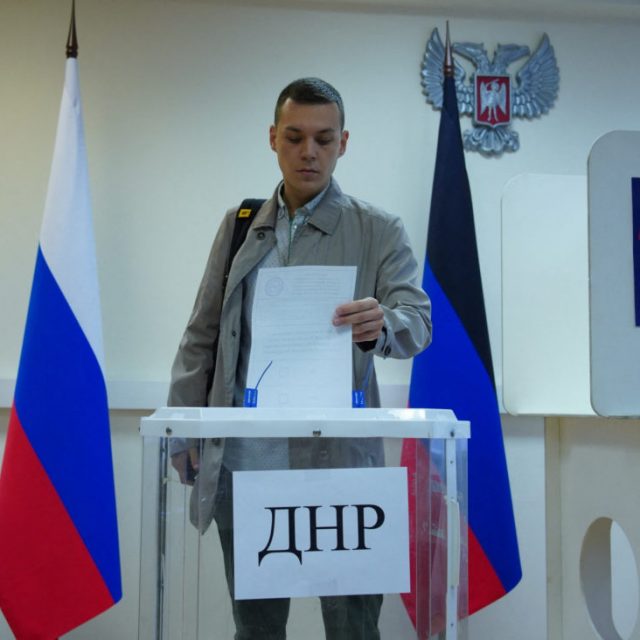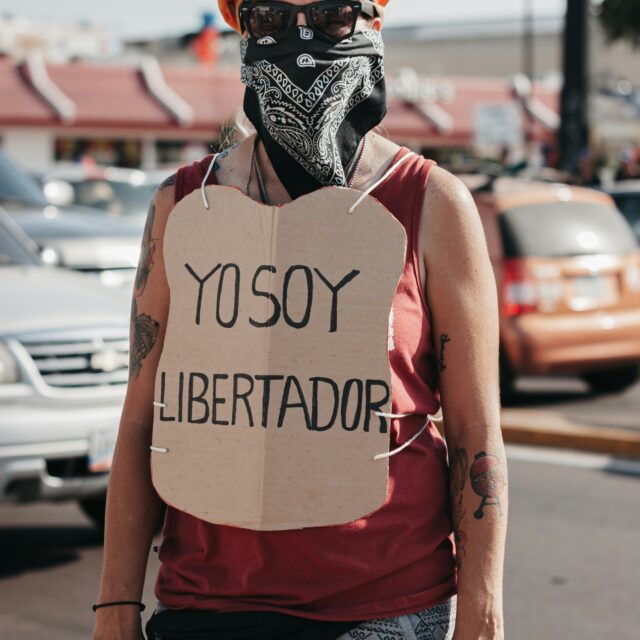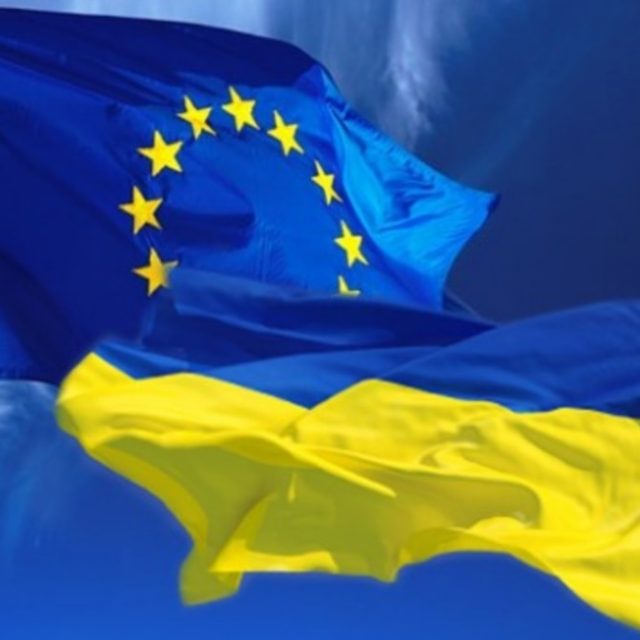Russian President Vladimir Putin delivered a pre-recorded video address to the 75th anniversary session of the United Nations General Assembly earlier this week.
The main focus of his address was on the global challenge that COVID-19 is posing. But he kept silent about the challenges Russia is presenting to the international community in a time of crisis. While the whole world is fighting the pandemic, he tried to push through the UN General Assembly his own version of a Declaration of Solidarity in the face of the challenges posed by COVID-19. He promoted the idea of lifting international sanctions against Russia and its satellites. From the UN rostrum, the Russian Federation tried to spread the narrative that, in the face of a common deadly threat, the West should forget about sanctions and turn a blind eye to Russian aggression against Ukraine, forget about the problems of Donbass and Crimea, and unite with the Kremlin, failing which the USA and the EU would be held responsible for their new corona victims.
While addressing the West on issues of reconciliation and unification in the common fight against coronavirus, the Kremlin is to the contrary working in the opposite direction. Nothing has changed with the regular sortie of Russian bombers over the Atlantic, nor their testing of NATO defences in the Barents and Norwegian Seas, and near Alaska. Sabre-rattling continues – in early April, Russia held a series of military exercises in Crimea, Buryatia, and the Mediterranean Sea.
Russian troops continue to fight in Donbass, making a mockery of the agreements reached in the Normandy format.In his address Putin proposed to convene a summit of the five UN Security Council permanent members. Since Russia’s exclusion from the G8, the Kremlin has been trying, so far unsuccessfully, to find an alternative platform in an attempt to show the world that it is returning to normal civilised communication. This behaviour however conveniently ignores the fact that actions speak louder than words; Russia forgets that it must take action towards this end, and take actual steps to cease the occupation of Crimea and end the war in Donbass.
In his speech, Vladimir Putin went through the ritual of speaking words about the need to unite and fight jointly against universal threats, including epidemics. He offered the world (and the staff of the UN) free Russian aid in the form of the Russian approved vaccine “Sputnik V”. But the science of this vaccine is hitherto unproven. For those without experience in international politics listening to Putin’s address for the first time, he may have come across as a “peacemaker”. But anyone following international events would understand his speech as manipulative diplomacy. The Kremlin is trying to exploit the coronavirus epidemic to push its own agenda, to split Western unity on sanctions, expand Russian influence, and whitewash its own image.
Vladimir Putin expressed serious concern about the fate of the START-3 Treaty and called for dialogue to resolve the issue. But at the same time, the Kremlin regularly sets up and conducts large-scale military exercises such as Kavkaz-2020, it boasts of its achievements in the field of new weapons; it poisons its civilian enemies – both at home and abroad – with banned military grade chemical warfare agents, and conducts political assassinations on foreign soil. This has been a classic model of behaviour in international relations for Russia, and before that the USSR, for a hundred years – calling for agreement on peaceful coexistence whilst intimidating others with war.
As Josef Stalin once said, a good diplomat is someone who says one thing, but does the opposite. However, after 2008 (a military campaign against Georgia) and after 2014 (hybrid military operations against Ukraine), this model is perceived critically both by the United States and NATO. The Alliance has directly blamed Moscow for the collapse of the Intermediate-Range Nuclear Forces Treaty (INF Treaty), and the international community no longer believes in the Kremlin’s peaceful intentions in the wake of Russian involvement in Ukraine, Syria, and Libya.
Vladimir Putin also called on themes he often uses to address Russian youths, recalling the Great Patriotic War, its lessons, historical memories, and the inadmissibility of rewriting history. However, those attending the UN General Assembly session were not fooled. The Russian president is not viewed as leader of a great power, not even as a politician redrawing European borders. He is perceived from three perspectives:
- Firstly, as a terrorist who, over the past five years, has been awkwardly denying involvement in the attempted assassination of a former Russian intelligence officer in the UK, the extermination of fugitive Chechens in Austria, the murder of Russian journalists in the CAR; refusing to even start an official investigation into the poisoning of Alexei Navalny where the same substance was used as in previous attempts to eliminate former Russian citizens abroad, and obstructing the trial in the Netherlands on charges against the Russian military shooting down civilian flight MH17 over Donbass on 17 July 17 2014;
- Secondly, as someone who sees himself as the new “gendarme” of Europe, by showing open support for Lukashenko as the illegitimate president of neighbouring Belarus despite clear evidence of him losing the August elections, and flatly refusing to yield in the face of continuing mass street protests against his usurpation of power; and
- Thirdly, as head of a country internationally known as a technology saboteur and mastermind of propaganda. Under his leadership the exposure of Russian espionage efforts, networks of influence and intelligence gathering have become widespread.
In his address, Putin developed ideas about the importance of the veto instrument in the system of international relations. But hiding behind their status as a permanent member, Russia has used the UN Security Council as a platform to promote their conspiracy theories – first against Ukraine, then against Syria, and then again in the cases of Skripal and Navalny poisonings.
Because of its veto power, Moscow blocked the UNSC’s investigation into two downed civilian passenger planes: a Korean Boeing shot down by a Soviet fighter jet in 1983 and a Malaysian Boeing flight MH17 shot down in 2014 by a Russian BUK-M1 missile launcher.
Russia has also been blocking the investigation of other war crimes, including chemical attacks by Syrian dictator Bashar al Assad against own civilian population. Russia has refused to condemn the first annexation that happened in Europe since WW2, because it was precisely Russia that carried it out by occupying Crimea. Through the UN Security Council Russia lobbies its own interests, effectively covering up its war crimes.




